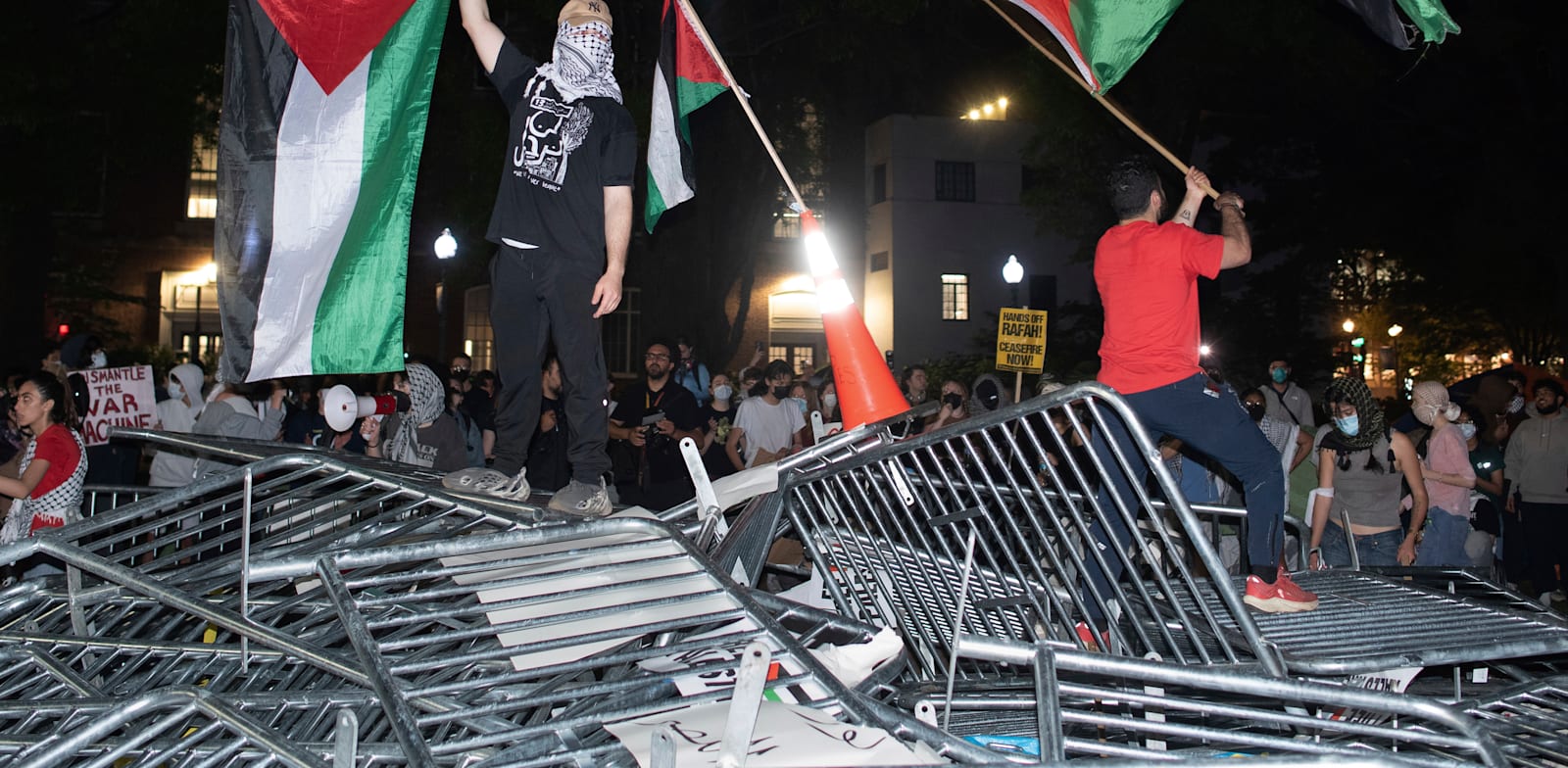The Legislative Committee of the US House of Representatives has advanced a new bill against anti-Semitism, which aims to define precisely what anti-Semitism is. The proposal will likely be brought to the House of Representatives for a vote this week by representatives of both American parties, despite criticism that also comes from both sides of the map.
The move is led by the Republican representative of New York, Michael Lawler. If accepted, some of the chants heard these days in the pro-Palestinian demonstrations on campuses in the USA will be considered criminal offenses.
In the US, there is already a law to prevent discrimination based on origin or ethnicity, and it applies to all institutions that receive federal public funding, including universities. Apparently, the prevention of anti-Semitism is already included in this law, and even today universities are required by law to prevent manifestations of anti-Semitism on campuses. However, Until now, there was no clear definition of statements considered criminal in this framework. The proposal is to include in the law a definition of what anti-Semitism is.
Israel is at the heart of the controversy
The definition included in the text of the law was written by an organization called the “International Holocaust Remembrance Alliance” to help those fighting anti-Semitism identify it, and was not originally intended to become part of a law. The controversial part of the definition is the one that states that criticism of Israel can in certain cases be considered anti-Semitism. “Anti-Semitism may be expressed in marking Israel as a goal, being the state of the Jews, although criticism against Israel similar to criticism of any other country is not anti-Semitism,” it said.
According to the text of the definition: “Anti-Semitism is a perception of Jews, which can be perceived as hatred of Jews… Anti-Semitism often presents Jews as having negative qualities, as conspiring to harm all of humanity, and blames the Jews when ‘things go wrong’. Examples of anti-Semitism are: calls to kill Jews or harm them due to a racist ideology or an extreme religious view; statements that demonize or dehumanize Jews, including statements that claim that ‘Jews rule the world’; blaming all Jews for the negative actions of one Jew or a small group of Jews Or the State of Israel exaggerating the Holocaust.”
The examples related to Israel are: “Accusing Jews that they are more loyal to world Jewry or Israel than to the country in which they live, denying the self-determination of the Jewish people, for example by claiming that the State of Israel is by definition a racist enterprise; demanding that Israel behave in a way that is not expected of any nation otherwise; comparing the policy in Israel to that of the Nazis, or blaming all Jews for the actions of the State of Israel.”
“Freedom of expression will be harmed”
In the end, the committee voted to put the law to a vote with a majority of seven in favor and four against. One of those, New York Democratic Representative Jerry Nadler, said the definition also allows speech that should be protected under free speech to be prevented. The definition, according to him, is too broad and includes legitimate criticism against Israel. Michael Bruggs, the Republican representative of Texas, replied that without a clear definition, universities would have no tools to keep Jews safe on campuses. For the law to be passed, it must pass a vote in the House of Representatives and the Senate, and then be signed by President Joe Biden. So far, the Biden administration has not addressed the law.
Prof. Anat Beck from the Faculty of Law at Case Western Reserve University, led a signing process for a letter from Jewish faculty members throughout the universities, asking members of the legislative committee to promote the law. “As an Israeli female faculty member at a US university, I have been a victim of ‘freedom of expression’ over the past months, and so have my students. There are also limitations to freedom of expression. If we don’t pass legislation that protects us, no one will protect us. Today, the university has the right to protect me and I want to make it its duty,” says Beck.
The protests are branded as intended to achieve a cease-fire in Gaza and to stop the investment of the universities in Israel, but many anti-Israeli statements are heard in them. The protestors claim that “we are not anti-Jews but only anti-Zionists”, and do not see the “No Entry to Zionists” sign hanging on a student club at UCLA University as an anti-Semitic statement, but it will probably be considered as such under the new definitions. There are also non-boundary statements. For example, one of the leaders of the demonstration in Colombia said that “Zions don’t deserve to live”, or “Be glad that I don’t go out to kill Zionists”. He was suspended by the university.
In a number of universities, Jews or Israelis were blocked from entering certain areas where the encampments are located, when sometimes the university itself demanded that they not enter these areas, even though they are part of the campus, in order to maintain their safety. A number of Israeli and Jewish students organized a class action lawsuit against Columbia, alleging that it failed to ensure their safety and complete their studies in peace.
Armed police arrived at some universities to disperse demonstrations, and over a thousand arrests were made. The confrontations are expected to worsen in the coming days, because the universities aim to remove the protest camps before the graduation ceremonies, which are considered the highlight of the degree.
For your attention: The Globes system strives for a diverse, relevant and respectful discourse in accordance with the code of ethics that appears in the trust report according to which we operate. Expressions of violence, racism, incitement or any other inappropriate discourse are filtered out automatically and will not be published on the site.
